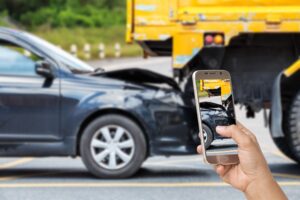
Read on to learn about enforceable non-compete agreements in Florida.
What is a Non-Compete Agreement?
A non-compete agreement is designed to prevent employees from competing with the employer after the employment period is over. This type of agreement helps businesses retain employees by prohibiting them from using work experience for the benefit of a business competitor. It may also prohibit employees from working in the same profession for a certain period after the termination of their employment. Continue reading “Is My Florida Non-Compete Agreement Enforceable?”

 After a motor vehicle accident in Florida, you may wonder about the recovery process ahead. While treatment plans vary significantly depending on the individual and the extent of their injuries, many include:
After a motor vehicle accident in Florida, you may wonder about the recovery process ahead. While treatment plans vary significantly depending on the individual and the extent of their injuries, many include: Everyone has the right to a safe work environment. In Florida, employees are legally protected from hostile work environments, but many don’t understand the extent of their rights under state and federal law.
Everyone has the right to a safe work environment. In Florida, employees are legally protected from hostile work environments, but many don’t understand the extent of their rights under state and federal law. Wearing a seat belt while you’re on the road may save your life in case of an accident. They’re legally required for all drivers and passengers in motorized vehicles in Florida, with only a few exceptions.
Wearing a seat belt while you’re on the road may save your life in case of an accident. They’re legally required for all drivers and passengers in motorized vehicles in Florida, with only a few exceptions.  The Homeowner Claims Bill of Rights defines the rights and responsibilities of homeowners insurance policyholders in Florida. Florida’s law requires insurance companies to provide residential policyholders with this document within 14 days after the policyholder reaches out about a claim. The Bill of Rights helps protect homeowners during the
The Homeowner Claims Bill of Rights defines the rights and responsibilities of homeowners insurance policyholders in Florida. Florida’s law requires insurance companies to provide residential policyholders with this document within 14 days after the policyholder reaches out about a claim. The Bill of Rights helps protect homeowners during the  Medical errors can occur following a
Medical errors can occur following a  If a car accident involves an employee on the job, determining liability can be complicated. Is the employer held liable for the damages? What if the employee was driving negligently?
If a car accident involves an employee on the job, determining liability can be complicated. Is the employer held liable for the damages? What if the employee was driving negligently? As one of the country’s most popular tourist destinations, Florida attracts millions of visitors every year. While there are many positives of Florida’s thriving tourism department, out-of-state drivers can complicate the aftermath of a car accident. Thankfully, with an experienced
As one of the country’s most popular tourist destinations, Florida attracts millions of visitors every year. While there are many positives of Florida’s thriving tourism department, out-of-state drivers can complicate the aftermath of a car accident. Thankfully, with an experienced  If you sign a liability waiver in Florida and sustain an injury, you may doubt your ability to pursue compensation for the related damages. Gyms, amusement parks, sporting events, daycares, and a variety of other businesses and facilities require liability waivers in Florida to limit their legal obligation in case of an accident.
If you sign a liability waiver in Florida and sustain an injury, you may doubt your ability to pursue compensation for the related damages. Gyms, amusement parks, sporting events, daycares, and a variety of other businesses and facilities require liability waivers in Florida to limit their legal obligation in case of an accident. Dog bites are more common than you might think. An estimated
Dog bites are more common than you might think. An estimated